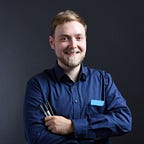The friendship deficit: Why real connection is the ultimate investment
“What I love about Simon is this: I feel like you’re a truffle pig of ideas that will shape the world. What I mean by that is I love seeing what you’re sniffing around in, because I believe it’s connected to something far greater. It’s not just the truffle, but the meal that it influences, and the restaurant that it shapes.” — Trevor Noah
This article is part of the Investigating human behaviour publication.
In a fascinating conversation hosted by the Brilliant Minds Foundation, Simon Sinek and Trevor Noah reflected on the often-overlooked significance of friendship in modern life. They explored how human connection, vulnerability, and emotional support play a profound role in mental health and personal fulfilment, yet are frequently sidelined in favour of career success and other ambitions. Throughout their discussion, they emphasised a key lesson: investing in friendships is as essential as any other life pursuit, particularly for emotional well-being and resilience.
Sinek explained that, while entire industries are built around improving leadership, parenting, and health, there is surprisingly little emphasis on how to cultivate meaningful friendships. He referred to friendship as the “ultimate biohack,” suggesting that strong relationships can alleviate many common struggles, such as anxiety, depression, and addiction. Noah, agreeing, pointed out that friendships, unlike professional success, provide a unique source of comfort and support, particularly in times of personal crisis.
The conversation also touched on the sacrifices many make for their careers, often at the expense of friendships. Sinek noted how easy it was for high performers to prioritise work over social connections, assuming that friends would always understand if plans were cancelled. Yet, he emphasised that during moments of personal hardship, it is friends — not work — that come to the rescue. Both Noah and Sinek highlighted the imbalance in how people value professional success versus personal connections, pointing out that this “friendship deficit” can lead to feelings of isolation later in life.
Noah shared an anecdote about how he had grown more intentional about maintaining his friendships. He described how many friendships in life are left to coincidence — people become friends because they happen to attend the same school or work together — but noted that real friendship requires conscious effort. By organising dinners, trips, and regular gatherings, he has worked to ensure that his friendships do not fade over time. Sinek echoed this sentiment, stating that relationships, much like careers, demand investment and attention to thrive.
One of the more profound moments came when Sinek recounted the famous “Rat Park” experiment, which demonstrated how social connections could protect against addiction. He compared this to human life, arguing that people are less likely to fall into destructive patterns when surrounded by supportive friendships. Noah extended this idea, reflecting on how modern society, with its emphasis on individual success, often leaves people without the strong social networks they need to maintain balance in their lives.
The conversation also delved into the vulnerability and openness needed to deepen friendships. Sinek shared a personal experience about how expressing love and vulnerability in his male friendships transformed those relationships. He mentioned how a friend, a military veteran, had told him, “I love you” at the end of a phone call — something rare in male friendships. This small gesture inspired Sinek to start saying “I love you” to his other friends, leading to deeper, more meaningful connections.
Both speakers agreed that society undervalues the emotional support that friendships provide, and Noah added that neglecting friendships can even harm romantic relationships. He explained how people often place unrealistic expectations on their romantic partners, expecting them to fulfil all emotional needs, when those needs should be spread across a network of close friends. This, they argued, places unnecessary pressure on romantic relationships and can lead to their breakdown.
Trevor Noah also addressed a concerning trend among young men, who, feeling isolated and angry, form online communities centred around negative emotions. These groups, he explained, thrive on shared grievances rather than genuine friendships, which only perpetuates loneliness and disconnection. Sinek supported this view, suggesting that many of the societal problems we see today could be alleviated if people were taught the value of meaningful human connection from an early age.
In conclusion, their discussion revealed that friendship is not a luxury but a necessity for a balanced and fulfilling life. Sinek and Noah repeatedly stressed that friendships require the same level of commitment and attention as any other important part of life. By recognising the “friendship deficit” and making an effort to invest in genuine connections, they believed people could find the emotional support, happiness, and resilience that so many feel are missing in today’s fast-paced, success-driven world.
#Investigating-human-behaviour by Roman Schoeneboom is a comprehensive exploration of the intricacies that shape human actions and interactions. This publication offers a deep dive into the psychological, social, and cultural forces that drive behaviors, providing insights on topics such as #emotionalintelligence, #socialinfluence, and #habitformation.
Rooted in a deep curiosity about what drives human behaviour, Investigating human behaviour explores the underlying motivations behind our actions. The publication investigates subconscious patterns, emotions, and social dynamics, offering insights into why we behave in certain ways.
